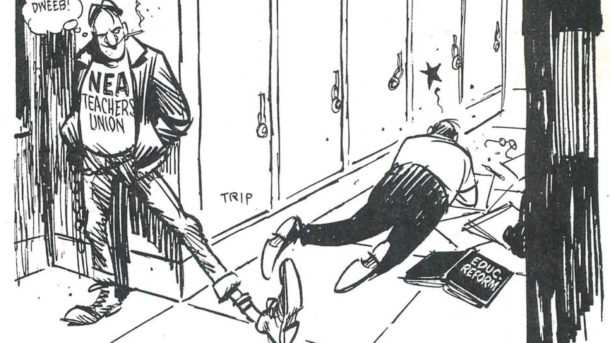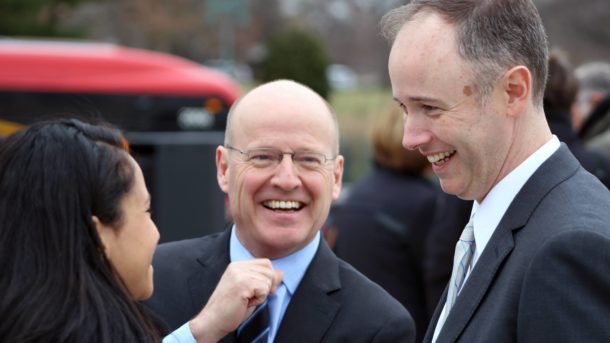U.S. Rep. Francis Rooney Introduces Bill to Stop Spending Tax Dollars on Union Activities
Rep. Francis Rooney (FL-19) introduced the Do Your Job Act of 2019 (H.R. 4090) in the U.S. House of Representatives.

Rep. Francis Rooney (FL-19) introduced the Do Your Job Act of 2019 (H.R. 4090) in the U.S. House of Representatives.

Force Oregon Taxpayers to Bankroll Unions? Beaver State Right to Work supporters face an uphill battle trying to keep a bill imposing direct taxpayer funding of government unions from reaching the desk of Big Labor Gov. Kate Brown (pictured). Credit:…

A new scholarly study shows convincingly that more extensive monopoly privileges and greater political clout for teacher union bosses result in worse educational outcomes at a higher cost to taxpayers. Credit: Henry Payne/Scripps Howard Union Monopolists Make Schools Less Effective…

Janus, in which Right to Work staff attorney Bill Messenger (right, pictured here with Committee President Mark Mix) was the plaintiff’s lead counsel, established one key thing: Government-sector forced union fees are unconstitutional. Freedom of Association Only Partially Protected Government…

Teacher Union Chiefs Lower Educator Salaries Union bosses are culpable for the surge in public pension costs decried by education policy expert Chad Aldeman. Chart Bellwether Education Partners Big Labor Bosses Benefit, But ‘No Current or Future Teacher Wins’ Government…
The average resident of a Right to Work state is spending two weeks less time this year laboring to pay off his or her total tax burden than is the average compulsory-unionism state resident. This Year, Right to Work ‘Tax…

Steven Greenhut: “It’s no secret” that union bosses put longtime workers’ interests above those of “newbies.” (credit: SAN DIEGO UNION-TRIBUNE) ‘You Had No Reason to Expect’ Union Officials ‘Would Betray You’ Today more than 30 states have laws on the…

This SEIU Scheme Will Be Tried in Right to Work States Too, Be Aware On Monday, the U.S. Supreme Court’s Harris v. Quinn opinion likely…

It is worth remembering that Illinois has become the belly of the beast when it comes to pleasing the union bosses at expense of the taxpayer. Even after raising taxes at the demand of union activists, the state is still suffering through an economic crisis. This is the point that Wisconsin Gov. Scott Walker has been making -- we can't balance state budgets without reforming the power of the union bosses. The Wall Street Journal notices the difference between Illinois and Wisconsin in a recent Op-Ed: Run up spending and debt, raise taxes in the naming of balancing the budget, but then watch as deficits rise and your credit-rating falls anyway. That's been the sad pattern in Europe, and now it's hitting that mecca of tax-and-spend government known as Illinois. Though too few noticed, this month Moody's downgraded Illinois state debt to A2 from A1, the lowest among the 50 states. This wasn't supposed to happen. Only a year ago, Governor Pat Quinn and his fellow Democrats raised individual income taxes by 67% and the corporate tax rate by 46%. They did it to raise $7 billion in revenue, as the Governor put it, to "get Illinois back on fiscal sound footing" and improve the state's credit rating. It's worth contrasting this grim picture with that of Wisconsin north of the border. Last winter Madison was occupied by thousands of union protesters trying to bully legislators to defeat Republican Governor Scott Walker's plan. The reforms passed anyway. In contrast to the Illinois downgrade, Moody's has praised Mr. Walker's budget as "credit positive for Wisconsin," adding that the money-saving reforms bring "the state's finances closer to a structural budgetary balance." As a result, Wisconsin jumped in Chief Executive magazine's 2011 ranking of each state's business climate—moving to 17th from 41st. Illinois dropped to 48th from 45th as ranked by the nation's top CEOs.